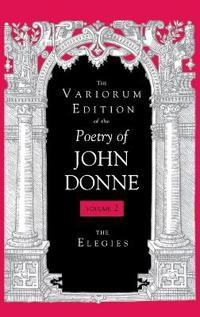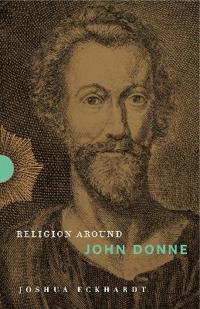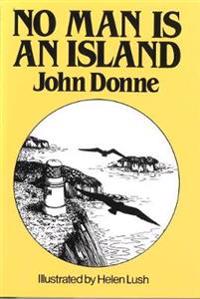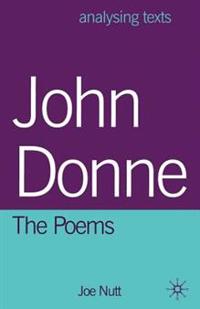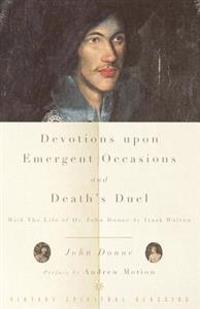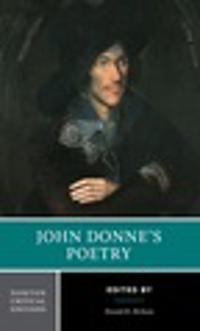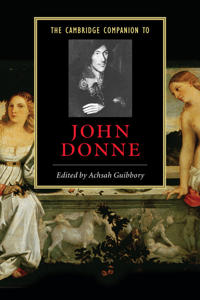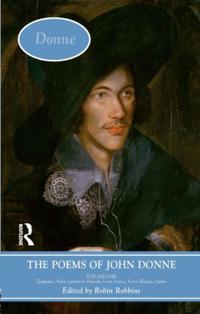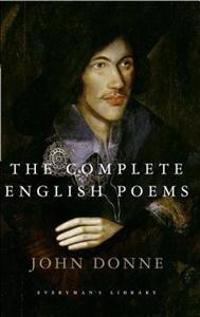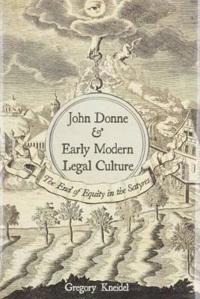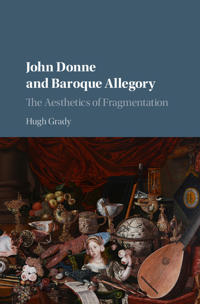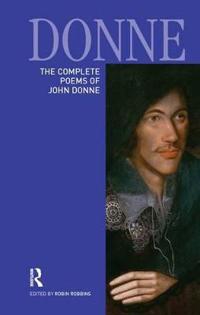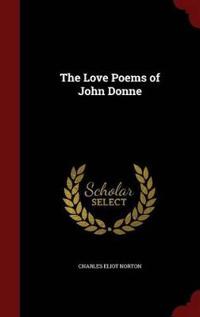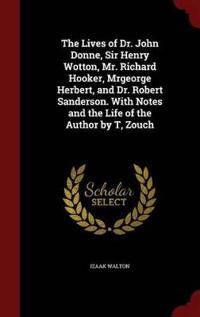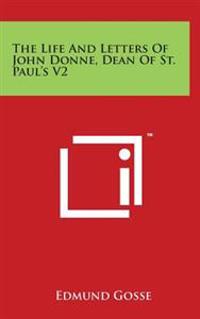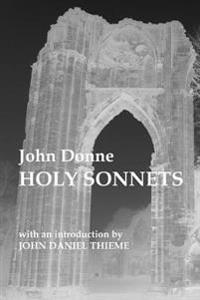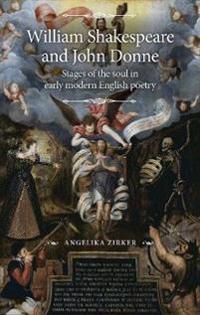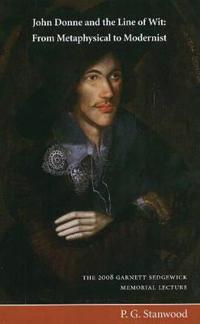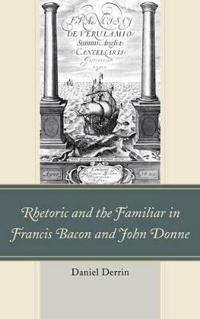The Variorum Edition of the Poetry of John Donne
ISBN: 9780253333766 - UTGIVEN: 1998-06From reviews of previous volumes: "This variorum edition will be the basis of all future Donne scholarship." -Chronique "Academic libraries and specialists in Renaissance and 17th-century studies should feel compelled to own each and every volume of this series." -Seventeenth Century News "An occ[...]
Religion Around John Donne
ISBN: 9780271083377 - UTGIVEN: 2019-03In this volume, Joshua Eckhardt examines the religious texts and books that surrounded the poems, sermons, and inscriptions of the early modern poet and preacher John Donne. Focusing on the material realities legible in manuscripts and Sammelb nde, bookshops and private libraries, Eckhardt uncovers [...]
No Man is an Island (Inbunden)
avJohn Donne
ISBN: 9780285628748 - UTGIVEN: 1988-10Classic meditative prose, written when the author lay seriously ill, listening to the tolling of the nearby church bells.[...]
John Donne: The Poems (häftad)
ISBN: 9780312225230 - UTGIVEN: 1999-11John Donne's poems are some of the most challenging and stimulating in the English literary heritage. One of the Renaissance's most human voices, his reputation as a poet has grown steadily since his death in 1631, fueled by poets like Coleridge, Browning, and T.S. Eliot. This book looks at the enti[...]
John Donne (Pocket)
avJoe Nutt
ISBN: 9780333747834 - UTGIVEN: 1999-09-03Covering the whole range of Donne's poetic output and with detailed analysis of individual poems, the practical techniques of his poetry are explained. There is a short history of his life and some contemporary criticism.[...]
Devotions upon Emergent Occasions / Death's Duel (Häftad)
avJohn Donne
ISBN: 9780375705489 - UTGIVEN: 199912John Donne (1572-1631) is best known as the greatest English metaphysical poet. But there was another dimension to Donne's life and writing that, if less well known, is no less profound and beautiful.
Born into an aristocratic Catholic family, Donne joined the Church of England at the ag[...]John Donne's Poetry (Pocket)
avDonald R. (EDT) Dickson
ISBN: 9780393926484 - UTGIVEN: 2006-11The texts reprinted in this new Norton Critical Edition have been scrupulously edited and are from the Westmoreland manuscript where possible, collated against the most important families of Donne manuscripts-the Cambridge Belam, the Dublin Trinity, and the O'Flahertie-and compared with all seven se[...]
The Cambridge Companion to John Donne (häftad)
ISBN: 9780521540032 - UTGIVEN: 2006-02The Cambridge Companion to John Donne introduces students (undergraduate and graduate) to the range, brilliance, and complexity of John Donne. Sixteen essays, written by an international array of leading scholars and critics, cover Donne's poetry (erotic, satirical, devotional) and his prose (includ[...]
John donne
ISBN: 9780571230891 - UTGIVEN: 2008-05John Donne (1572-1631) forfeited his Parliamentary seat and was briefly imprisoned when his secret marriage to Ann More was uncovered in 1601. He spent the subsequent decade in poverty, trying to rehabilitate his reputation. He entered the Church in 1615, and become Dean of St Paul's. His first volu[...]
Selected Poems Of John Donne (Pocket)
avPhillip Mallett
ISBN: 9780582414655 - UTGIVEN: 1999-04-21'York Notes Advanced' offer an accessible approach to English Literature. This series has been completely updated to meet the needs of today's A-level and undergraduate students. Written by established literature experts, York Notes Advanced introduce students to more sophisticated analysis, a range[...]
The Poems of John Donne (Inbunden)
avRobin (EDT) Robbins
ISBN: 9780582505766 - UTGIVEN: 2008-11John Donne (1572-1631) is firmly fixed in the canon of English literature. "No man is an island" and "For whom the bell tolls" are just two of his phrases known by virtually everyone. The Poems of John Donne is a two volume edition of Donne's poems based on a comprehensive re-evaluation of his work[...]
The Complete English Poems (Inbunden)
avJohn Donne
ISBN: 9780679405580 - UTGIVEN: 199110The magnificent Seventeenth-Century metaphysical poet John Donne created new forms of lyric, satire, erotic poems, and religious verse that left poetry in English forever changed. From his famously sensual love poems to his equally passionate and powerful Holy Sonnets, Donne's forceful language and [...]
John Donne
ISBN: 9780809131600 - UTGIVEN: 1990-08The most in-depth and scholarly panorama of Western spirituality ever attempted!In one series, the original writings of the universally acknowledged teachers of the Catholic, Protestant, Eastern Orthodox, Jewish, Islamic and Native American traditions have been critically selected, translated and in[...]
John Donne and Early Modern Legal Culture
ISBN: 9780820704814 - UTGIVEN: 2015-11hough law and satire share essential elements both aim to correct individual vice, to promote justice, and to claim authority amid competing perspectives their commonality has gone largely unexplored by both legal theorists and literary critics. Gregory Kneidel, in this thoroughly original work, fin[...]
John Donne and Baroque Allegory
ISBN: 9781107195806 - UTGIVEN: 2017-08John Donne has been one of the most controversial poets in the history of English literature, his complexity and intellectualism provoking both praise and censure. In this major re-assessment of Donne's poetry, Hugh Grady argues that his work can be newly appreciated in our own era through Walter Be[...]
A Bibliography Of Dr. John Donne (Pocket)
avGeoffrey Keynes
ISBN: 9781107624061 - UTGIVEN: 2013-09-26First published in 1958, this third edition supplies a detailed bibliography of the poet and cleric John Donne.[...]
The Complete Poems of John Donne
ISBN: 9781138133396 - UTGIVEN: 2015-10The Poems of John Donne is one volume paperback edition of the poems of John Donne (1572-1631) based on a comprehensive re-evaluation of his work from composition to circulation and reception. Donne's output is tremendously varied in style and form and demonstrates his ability to exercise his rhetor[...]
The Complete Poems of John Donne
ISBN: 9781408231241 - UTGIVEN: 2010-06The Poems of John Donne is one volume paperback edition of the poems of John Donne (1572-1631) based on a comprehensive re-evaluation of his work from composition to circulation and reception. Donne's output is tremendously varied in style and form and demonstrates his ability to exercise his rhetor[...]
The Life and Letters of John Donne, Dean of St. Paul's V2 (Inbunden)
avEdmund Gosse
ISBN: 9781497824492 - UTGIVEN: 2014-03William Shakespeare and John Donne
ISBN: 9781526133298 - UTGIVEN: 2019-01This study analyses concepts and representations of the soul in the poetry of William Shakespeare and John Donne. It shows how the soul becomes a linking element between the genres of poetry and drama, and how poetry becomes dramatic whenever the soul is at its focus. This double movement can be obs[...]
John Donne and the Line of Wit (Pocket)
avP. G. Stanwood
ISBN: 9781553800651 - UTGIVEN: 2009-01This is a study of influence, adaptation, and historical imitation and invention. In his own time, Donne was celebrated for his distinctive style, especially for what his contemporaries recognized as "strong lines", that is, witty conceits or unusual, often unexpected and surprising comparisons. Hi[...]
Rhetoric and the Familiar in Francis Bacon and John Donne
ISBN: 9781611478082 - UTGIVEN: 2015-02Rhetoric and the Familiar examines the rhetorical practice of Francis Bacon and John Donne in both their writing and public speaking. It explores how their rhetorical planning negotiates the need both to use and combat familiar ideas, images, and emotions, when engaging different audiences. The book[...]

